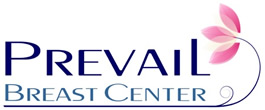A fellowship trained breast surgeon is recognized as expert in their ability to provide superior diagnosis and care related to breast cancer and disease.
To qualify for an advanced Surgical Breast Oncology Fellowship, a physician must be a general surgeon, having completed a five to seven year general surgery residency after completing medical school.
To be accepted into a Surgical Breast Oncology Fellowship a general surgeon applicant must possess an interest in the diagnosis, treatment and cure of breast cancer and disease. Selection is typically determined by a board review of past surgical performance and personal interview. Once accepted, most surgeons complete up to two years of advanced training. Not all applicants who apply are accepted into a surgical breast oncology fellowship program.
A Surgical Breast Oncology Fellowship – Training Requirements
The requirements to complete a surgical breast oncology fellowship involves extensive surgical and interdisciplinary training and education. Though breast surgery is a major component of the fellowship, there is considerable interdisciplinary training as well. As defined by the Society of Surgical Oncology a fellowship trained surgeon must accomplish training and exhibit competency in the following areas: Breast Imaging, Breast Surgery, Genetics, Medical Oncology, Plastic and Reconstructive Surgery, Radiation Oncology, Psychological and Social Oncology, and Community Service and Outreach.
Breast Imaging – A breast surgeon must understand the techniques of diagnostic mammography, MRI and other imaging technologies. They must also demonstrate the ability to distinguish normal breast anatomy from cysts and the differences between benign and suspicious masses. A breast surgeon must also be able to proficiently perform image guided biopsies. Additionally, a breast surgeon must be able to discuss the complexities and sometimes controversy of imaging technology related to breast screening for women in different age categories.
Breast Surgery – at the end of training a breast surgeon can demonstrate competency in the evaluation and management of common benign and malignant breast diseases. They are trained in the following procedures; breast sonography, punch skin biopsy, fine needle aspiration, cyst aspiration, and percutaneous core biopsy.
Surgeons who complete a surgical breast oncology fellowship are trained to perform numerous surgical techniques and procedures specific to the breast and surrounding lymph nodes. Some examples are; simple mastectomy, bilateral mastectomy, skin and nipple sparing mastectomy, lumpectomy, chest wall resection, sentinel lymph node procedure and axillary lymph node dissection.
Fellowship trained breast surgeons are also knowledgeable in techniques that optimize the best potential for cosmetic outcomes. This is accomplished by interdisciplinary coordination between radiologists, oncologists, radiation oncologists, pathologists and plastic surgeons. It must be noted most fellowship trained breast surgeons do NOT perform reconstructive cosmetic surgery. This surgery is performed by a Plastic surgeon.
A fellowship trained breast surgeon will also be trained in the evaluation and management of lymphedema (swelling) as the result of breast surgical procedures. This can include the incorporation of physical therapy and exercise to regain movement and flexibility post surgery.
Genetics – Training received includes the ability to identify patients with a high potential for developing breast cancer. This involves the identification of risk factors such as familial, race, pathologic, environmental, previous cancer causing therapies (such as extensive childhood radiation) and genetic testing. Also significant is the study and ability to discuss with the patient the evidence of lifestyle behaviors and their connections to breast cancer.
The best medical decisions are those that are shared by the patient and their breast surgeon. A very important facet of fellowship training for a surgeon is to learn whom to assess and how to present statistical outcome evidence for different cancer procedures and therapies. When the breast surgeon shares this information a patient is better able to participate in the decision making process based on fact and current research.
Medical Oncology – A fellowship trained breast surgeon can assess the indication and contraindications for chemotherapy and hormone replacement therapies and can discuss with the patient the balance between benefit and side effects related to these therapies. A fellowship trained breast surgeon can also educate the patient relevant to needs for family and friends for psychological support.
Plastic and Reconstructive Surgery – At the completion of training a breast surgeon can demonstrate understanding of reconstructive surgery to patients and to perform surgical procedures that increase a patient’s positive outcome if reconstructive surgery is part of their medical process. It should be noted the vast majority of breast reconstruction surgery is performed only by plastic surgeons NOT the breast surgeon.
Radiation Oncology – A fellowship trained breast surgeon can describe the radiation therapy process to the patient. This can include; treatment planning, treatment delivery, simulation and chronic effects of radiation therapy. The breast surgeon is also able to describe the differing levels and types of radiation therapy and their impact on reconstruction as well as localized radiation techniques. Examples of specific treatments are post surgery breast conservation radiation therapy, post mastectomy radiation therapy and the management of chest wall tumor recurrences. The breast surgeon can also discuss prevalent and new research regarding radiation therapy.
Psychological and Social Oncology – A fellowship trained breast surgeon also receives training in the recognition of cultural diversity and the requirement for the physician to be aware and sensitive to unique cultural needs in the treatment of disease and cancer. The breast surgeon and their staff is aware of local, national and in some cases, international, organizations and resources to help a patient achieve the best outcomes.
Community Service and Outreach – An important component of improving patient care and health outcomes is the acknowledgment and incorporation of community programs and services. A fellowship trained breast surgeon learns that direct personal participation in the community increases knowledge of the patient population and instills a personal connection between the physician and the community in which they serve.



